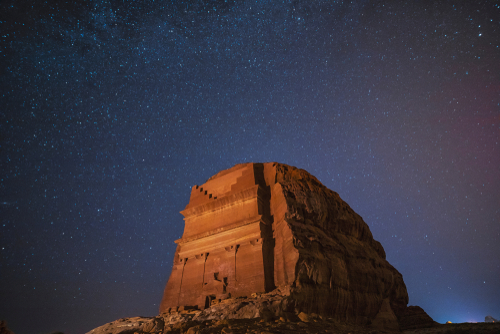ADVOCACY: Culture: a catalyst for economic prosperity
Saudi Arabia’s Ministry of Culture recently hosted the first ever meeting of G20 culture ministers. They pledged to support and advance the global cultural economy – valued at $2.3 trillion – and agreed to promote cultural dialogue into the broader context of international development
When COVID-19 struck earlier this year, it shone a spotlight on economic areas that could help to build stronger, more resilient economies – a cornerstone of Saudi Arabia’s G20 agenda.
Culture is an important factor in building understanding among peoples and civilizations. It’s also a catalyst for global economic growth. The pandemic highlighted the need for policymakers to bring the cultural economy – a sector that includes cinema, national heritage sites, art and cuisine, books and museums – to the forefront of the global economic discussion.
On 4 November, Saudi Arabia’s Ministry of Culture hosted the first ever Joint Meeting for Ministers of Culture, co-chaired by Saudi minister of culture HH Prince Badr bin Abdullah bin Mohammed bin Farhan Al-Saud and Dario Franceschini, Italian minister of cultural heritage and activities and tourism. The meeting was organised in conjunction with the G20 Saudi Secretariat as part of the International Conferences Program, honouring the Saudi G20 presidency under the theme “The Rise of the Cultural Economy: A New Paradigm”.
United by their common belief in the power of culture to reduce differences, enhance diversity and create value, G20 cultural leaders, partner countries and international organisations pledged their support to advancing the cultural economy. The presence of the ministers on the margins of Saudi Arabia’s G20 presidency demonstrated a shared belief in the vital role culture plays in driving global prosperity.
Heritage preservation, sustainable development and the promotion of creative industries were discussed, as was the employment of new technologies, developing digital platforms for artistic expression and making cultural resources more easily accessible so that they can be an engine for economic growth.
Although the COVID-19 pandemic closed economies and forced people to drastically alter their lives, there were positive signs that provided hope. People continued to share ideas, create art and take tours of virtual museums and galleries. They watched internet stars on YouTube and streamed plays, operas and ballet.
People increasingly went online to tap into cultural events and locations that were suddenly off limits, speeding up the pace of global cultural interconnectivity. As the world moved away from in-person activity, the appetite for creative expression only grew. Tech companies, institutions and governments quickly adapted to meet this demand.
Saudi Arabia also played its part. Under the theme “Culture in Isolation”, the Ministry of Culture launched a digital culinary programme during the holy month of Ramadan and an e-learning platform for Arabic calligraphy and Islamic decorative arts. Saudi Arabia’s Royal Commission for AlUla created a video series – Explore AlUla in 360 – for the region’s historical landmarks.
A valuable sector
Before the pandemic, the cultural economy had already emerged as an innovative industry with the potential for significant growth. The numbers speak for themselves. Annual revenue from the cultural and creative sectors is worth $2.25 trillion. Creative exports are valued at more than $250 billion. Worldwide, more than 30 million people are employed in related industries, and some forecasts put the contribution of the sector to global gross domestic product at around 10% in the near future.
It is under these conditions that the Saudi presidency chose to elevate a cultural agenda during the Joint Meeting for Ministers of Culture. This is only the first stage of the journey, with the discussion set to continue during Italy’s presidency in 2021 and beyond.
In Saudi Arabia, steps have been taken to develop this area of the economy.
During the G20 meeting, the Ministry of Culture announced an initiative to establish a world-class centre dedicated to the management, restoration and protection of the Red Sea and the Arabian Gulf. The Heritage Commission will oversee relevant projects and award scholarships and research grants for the initiative. The goal is to take research and turn it into actionable policies. Other new initiatives will see the establishment of world-class heritage museums, complementing the five sites already registered on the list of UNESCO World Heritage Sites. This work aligns with Saudi Arabia’s Vision 2030, which stresses the importance of culture and heritage in its three pillars with the aim to create a vibrant society, a thriving economy and an ambitious nation.
Creative interaction among nations has shaped cultural heritage. Preserving it today requires continued effective collaboration among countries. Yet despite the increasing recognition of the importance of culture for social and economic development, more needs to be done to highlight the role that it plays in the global economy. With the unprecedented challenges the world faces today, amid the lack of sustainable and equitable economic development around the world, the cultural economy is increasingly important.
The onus is on us all to preserve our shared heritage for future generations and to produce and disseminate culture in a sustainable manner. And with commitment from the G20 members – and its partners worldwide – to strengthen cultural engagement, the cultural economy can be a key part of the global recovery.












